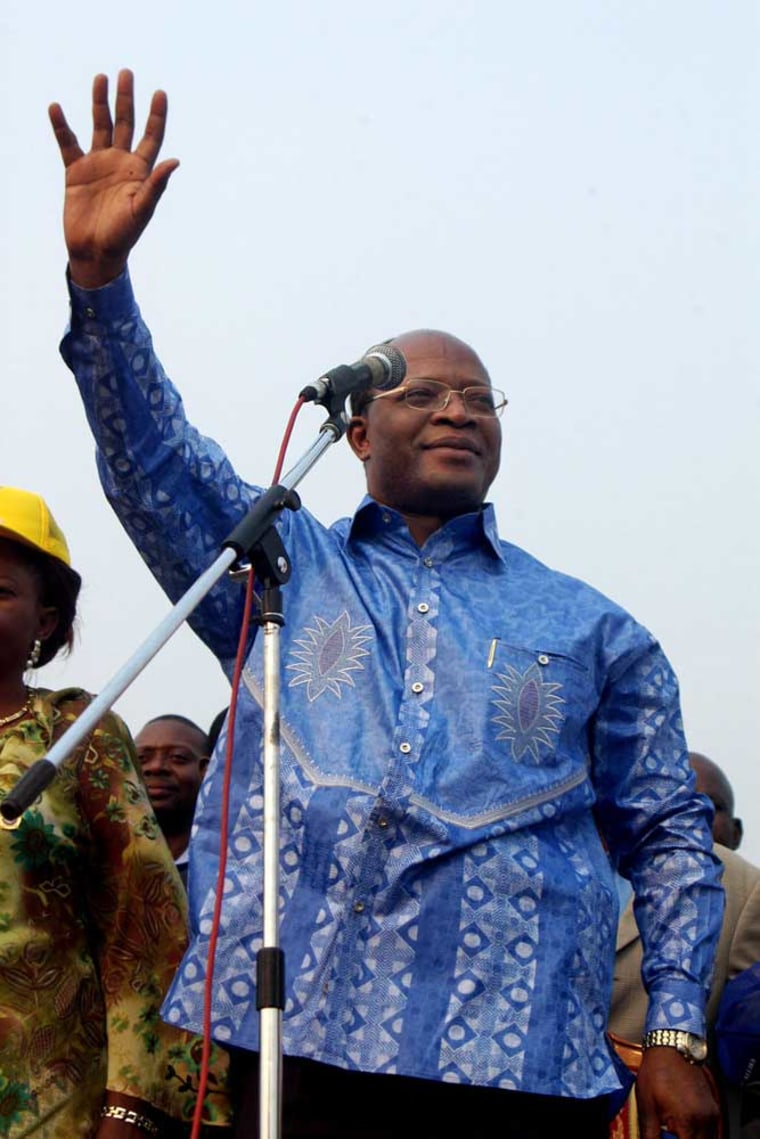A Harvard-educated doctor who lived most of the last 20 years in the United States is emerging as a potential kingmaker in Democratic Republic of Congo — perhaps spelling trouble for President Joseph Kabila.
Oscar Kashala, a Massachusetts cancer specialist, came from political obscurity this year to challenge for the presidency of the vast central African country in last Sunday’s elections.
Early returns from Congo’s first multiparty vote in more than 40 years showed the former Belgian colony split down the middle between Kabila in the highly-populated east and ex-rebel leader Jean-Pierre Bemba, who led in the west and Kinshasa.
But Kashala, 51, stood in third place — handing him a powerful bargaining position if no candidate wins a majority and the election heads to a runoff on Oct. 29.
In a run-off, anything could happen
“If it goes to a second round then Bemba and Kabila are going to need to build coalitions,” said Jason Stearns, senior analyst at International Crisis Group think-tank. “Kashala has performed strongly and that could make him influential.”
Kashala’s slick, U.S.-style campaign traded on his "clean hands": he is a political outsider untainted by involvement in a bloody 1998-2003 war, which killed more than 4 million people.
But the Westernized doctor received an unexpected boost when Kabila briefly jailed his security guards on charges of coup plotting in May — handing Kashala a flood of publicity, which he used to denounce government intimidation and harassment.
Kabila, still one of the world’s youngest presidents at 35, alienated Kashala by harassing his campaign, diplomats say, and is unlikely to win the support of some of the other candidates.
Outside his Swahili heartlands in the east, there is tough opposition to another Kabila government in the Lingala-speaking west and Kinshasa — where many opponents brand him a foreigner. In the capital, electoral slogans said: “Anyone but Kabila."
“We had thought Kabila would win in the first round, but if it goes to a second round, anything could happen,” said Stearns.
Stakes are high
The stakes are high, as the country the size of Western Europe contains fabulous mineral wealth, including diamonds, gold, copper, cobalt and coltan — much of which was plundered by neighboring governments after the fall of dictator Mobutu Sese Seko.
Bemba, whose strong showing surprised many people, has said that he would review dozens of mining contracts signed by Kabila, especially in his southern stronghold of Katanga.
The former warlord has already warned he would not accept Kabila winning outright in the first round. Another rebel group turned political party, the RCD, denounced massive fraud by Kabila in the east, but privately party officials have said this could be overlooked as long as there is a second round.
Bemba, who has served as vice-president in an interim government since 2003, has a smaller existing coalition than Kabila and so can better afford to woo new support with offers of influential positions in a possible government, Stearns said.
“I hope to reach agreements with people before a second round,” said Bemba, hailing Kashala as the third-placed candidate with an estimated 10 percent of the overall vote.
“In elections there should be no losers.”
